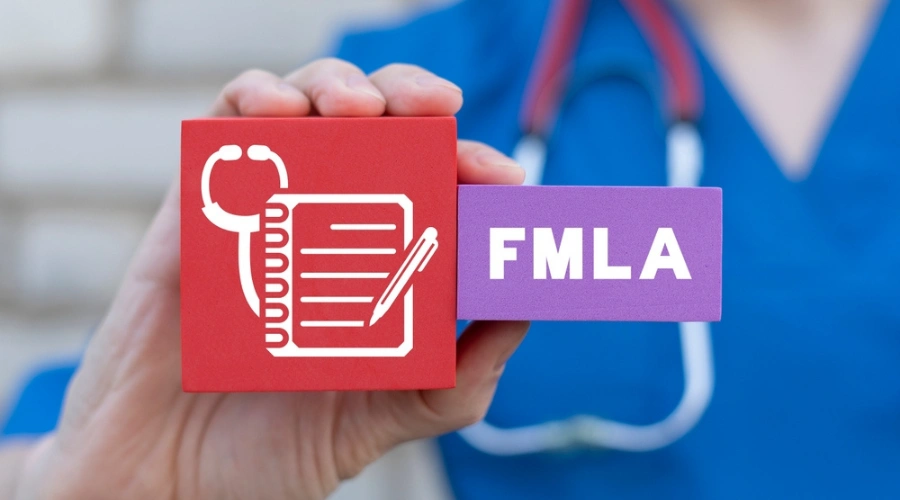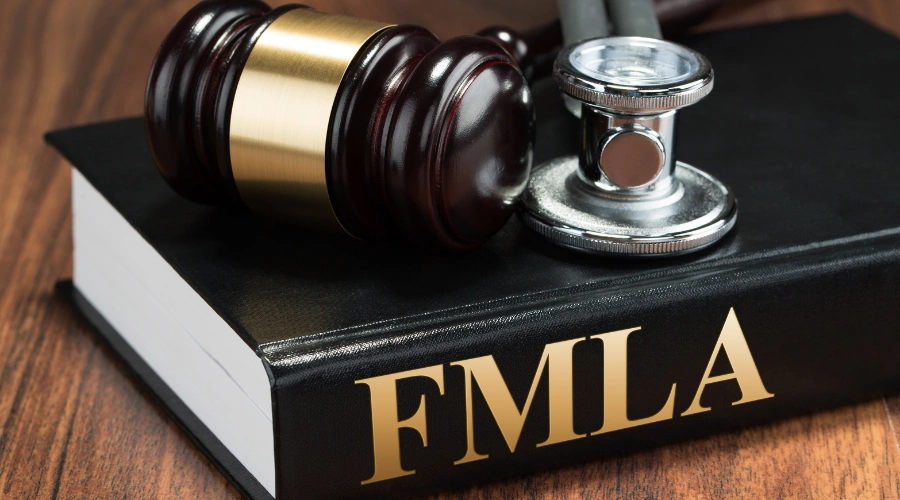Taking Time Off For Addiction Treatment With the Family Medical Leave Act
Is it possible to use FMLA for rehab? Drug and alcohol abuse is a serious health condition, after all, so it seems like taking time off under this act should be an option.
Let’s take a closer look below at how the law works so you can weigh your various options and proceed accordingly.
Anyone facing substance use disorder should strongly consider entering drug and alcohol rehab right away. The benefits of getting professional help with this matter are many. You’ll be able to go through the detox process safely and begin a formal treatment program right away.
Quitting on your own is extremely difficult – and even dangerous – but recovery will be within reach when you get the right help.
Ingrained Recovery is here to help you get started. Reach out today to talk to one of our admissions coordinators and learn more about the treatments can offer.
Get Accredited Treatment at Ingrained
Find Help At Ingrained Recovery
What is the Function of FMLA Legislation?
FMLA stands for the Family and Medical Leave Act. This is a federal law that provides eligible employees with up to 12 weeks of protected leave within a 12-month period. That leave is unpaid, but it protects workers from losing their jobs as a result of needing to take leave to tend to personal matters.
A variety of different qualifying reasons can be used to take leave under FMLA. The birth of a child and the care of that child in the first weeks of its life is one. Caring for a family member with a serious health condition is another. Also, receiving treatment for a personal health condition can qualify someone for protected leave.
As it relates to rehabilitation, substance use disorder is recognized as a medical condition. That means FMLA can be used to take time off for drug rehab treatment. So, if you are struggling with drug and alcohol use and don’t feel like you have the time available in your schedule to receive care, this law may provide you with a path forward.
Understanding the FMLA Criteria

There are some specific criteria in place that must be met before you can qualify for FMLA protections. If you don’t meet the qualification criteria, you won’t be covered under this law. However, it’s important to note that you should still explore all of your options to get into an addiction treatment center and address your challenges.
As a starting point, you need to have worked for your current employer for at least 12 months. Also, during the last 12 months, you need to have worked at least 1,250 hours.
Finally, FMLA only applies to businesses that employ 50 or more employees within a 75-mile radius. So, people who work for small businesses are not protected by this act.
What Addiction Treatments Are Covered Under FMLA?
There are some nuances involved with determining what counts for leave under FMLA. It’s important to understand what is covered and what isn’t, so you can make sure to proceed in a way that won’t put your job in jeopardy.
Covered
The basics of getting treatment for an addiction will be covered by FMLA. For example, checking into a drug rehab center while on unpaid leave is covered under this law. That includes inpatient care as well as outpatient treatment, and any continuing treatment that you require to further your recovery. There might also be doctor-ordered treatment appointments that mean you need to take time off work to attend.
If you have your employer deny FMLA despite using it for one of these covered situations, you may need to speak with human resources or even pursue legal options to protect your rights. In addition to treatment that applies directly to drug or alcohol abuse, treatment for co-occurring mental health conditions should also be covered.
Not Covered
Not everything that causes you to miss work is going to be subject to protection from FMLA. First of all, if you take time off because of the drug or alcohol use itself – such as when you have a hangover – that will not be covered by this law. Also, if you are attempting to treat yourself for this addiction without involving a healthcare provider, that also is not covered.
Even if you enter a program aimed at improving your physical or mental condition, that time will not be covered unless it was ordered by a healthcare professional. At the heart of the matter, what is covered is what is part of a formal medical plan that is taking place under the supervision of a licensed provider.
By working with a licensed rehab center like Ingrained Recovery, you’ll not only be eligible for FMLA (if the other conditions are met), but you’ll also receive excellent care that will move you closer toward lasting recovery.
Will I Be Fired for Taking FMLA to Go to Rehab?

No, if you are eligible for FMLA, you cannot be legally fired for taking time off to go to rehab. This is core to the idea behind the law and it is the protection that you are provided as an employee.
Of course, it’s important that you do everything properly in order to get these protections. You need to not only meet the eligibility criteria, but also follow the notification and documentation rules along the way. You’ll likely need to provide suitable notice and then offer proof that you have been receiving treatment by an approved provider.
It should be noted that FMLA does not protect you from termination for other reasons. For example, if your substance abuse challenges have caused performance issues like not showing up on time or not doing your job properly, you still may be terminated. In that case, your termination would not be a result of the time off, but rather the way you performed while not on leave.
The FMLA Application Process
As mentioned above, in order to use the leave offered by the Family Medical Leave Act, you need to follow the steps appropriately. The specifics of this will depend on the rules your employer has in place, but it usually starts by checking in with a healthcare provider.
Connect with a facility like Ingrained Recovery to confirm that treatment is medically necessary and get documentation regarding what kind of treatment you will be receiving.
Once that is in place, you can then notify your employer and fill out any required paperwork. Both you and your healthcare provider will need to complete the forms. You don’t need to provide all of the personal details about your care, so you can just say that it is for a serious health condition and leave it at that.
What Happens After FMLA Leave is Over

When leave is over, your employer is required to restore you to your original position, or to an equivalent job. You’ll be provided with the same pay and benefits as before. This is why the protection provided under the law is so important.
It’s important to understand that transitioning back to work can be difficult and a potential trigger for relapse. To make sure it goes as smoothly as possible, continue to seek support in the form of counseling, support groups, and more.
Up To 100% of Rehab Covered By Insurance
Find Help At Ingrained Recovery
Get Our Support and Use FMLA for Rehab at Ingrained Today
Drug and alcohol treatment is too important to put off even one more day. Now that you understand the landscape around family and medical leave, you can put together a plan that will enable you to receive the treatment that is badly needed to address your own severe health conditions.
Ingrained Recovery is a proven partner for individuals struggling with drug and alcohol addiction. Whether you are going to try to take FMLA leave, or you’ll make time another way, the first step in this process is to call our facility. We’ll talk through the treatment options with you and determine how to move forward. Let’s team up to leave drug abuse and alcohol addiction in the past.

